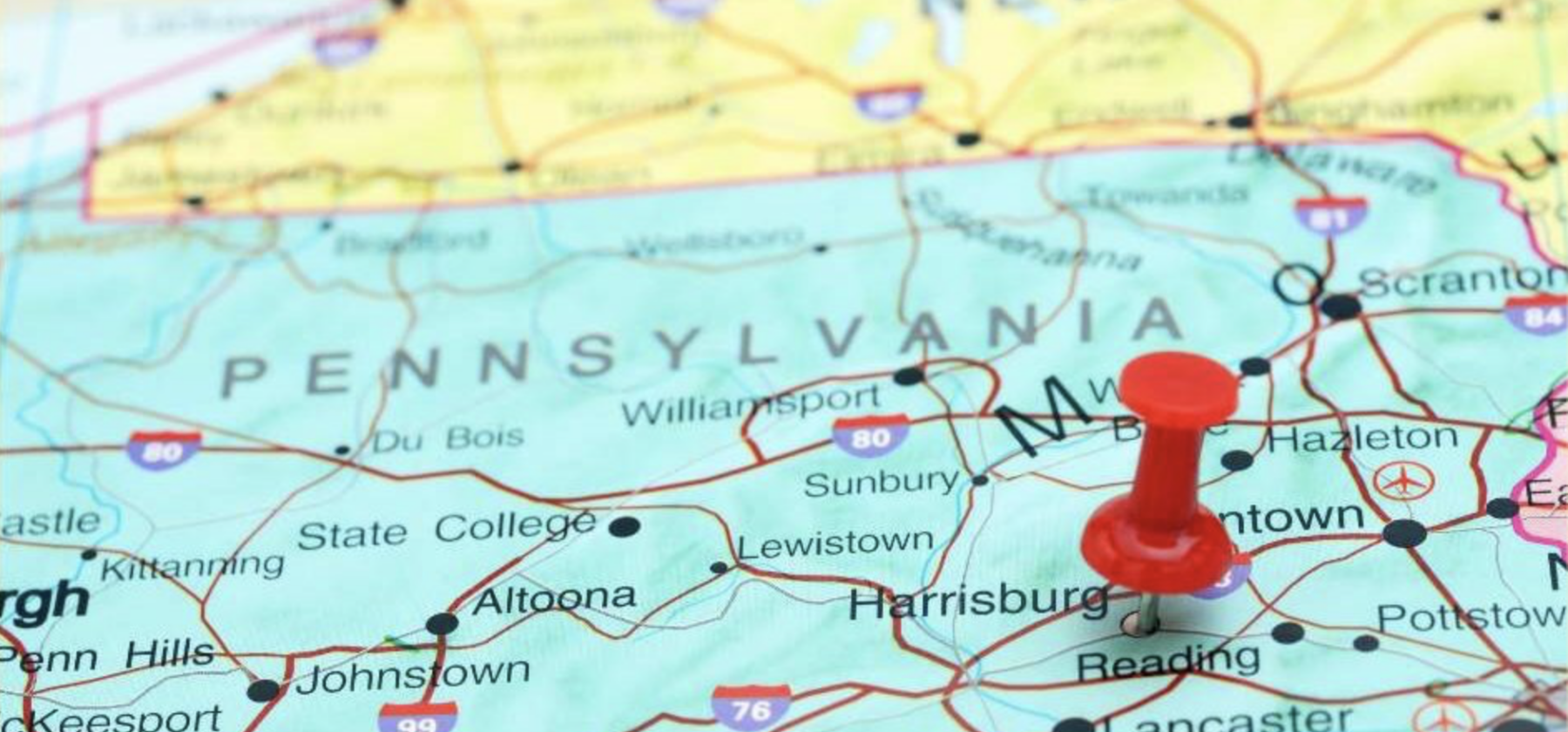Polarization around political and social issues is galvanizing voters to protect one version of America against a different vision projected by the opposing party. Further, people have strong feelings about what the “story of America” is, has been, and should be. The 2024 election is thus shaping up to be another demonstration of the fractures among the American people and Pennsylvania, as a swing state, is poised to play a pivotal role in helping to determine the outcome of the Presidential election.
Political empathy asks that we apply empathetic skills to US politics, a realm that has not only been markedly polarized, it has reflected extreme disconnection between those who identify differently ideologically because they do not share information or space.
The summer of 2024 will be an interesting time to travel around Pennsylvania. PEL’s research provides an authentic opportunity to meet fellow residents of Pennsylvania face to face, acknowledging that we experience different lived realities and want to try to better understand each other. PEL will visit counties across the Commonwealth of Pennsylvania beyond the Philadelphia region through several mini trips. We hope to encounter Pennsylvanians who hold different socio-political views and engage them in conversation grounded in deep listening.
Dr. Howard says “The hope is that this experience will sharpen and awaken our intellectual humility and curiosity around ideologies and beliefs that differ from our own. An additional aspiration is that we might understand how place may connect to ideology as well as the role that super-ordinate identities may hold to our sense of belonging.” She adds, “This trip provides a variety of immersive opportunities to exercise our practices around dialogue.”
This research experience is deliberately not canvasing and not polling, though the team will work with Penn’s Public Opinion and Election Studies (PORES) team to inform their practices. PEL seeks to better understand fellow Pennsylvanians through better conversations with them.
The team will visit such sites as municipal buildings, main streets, museums, state fairs, union workers offices, the capital building, historical archives, a mushroom farm, prison, flood sites, and environmental and energy spots with wind turbines, and many others.
Why did PEL choose PA?
- 2024 is an Election year and Pennsylvania is a swing state
- This would allow Penn students to encounter “the other side” of issues where there may appear to be consensus at Penn
- This would likewise allow folks in other communities in Pennsylvania to encounter Penn students with the aspiration of dispelling myths about so called “elites”
- Pennsylvania has regional variation and both rural, suburban and urban counties providing an in-depth social and political analysis of one state
- Pennsylvania is the state in which Penn is located. As an institution we often discuss our local identity as Philadelphians but less frequently our identity as Pennsylvanians
This summer the public is invited to follow the project in a number of ways: through a dedicated podcast, The Park: Political Empathy Lab, with stories and interviews captured on the road; regular content added to the project’s website; and by activating tools and resources shared for conducting effective dialogue.
The PEL Research Team includes Penn students across a range of disciplines, from Political Science and Philosophy, Politics, and Economics, to Religious Studies, English and Classical Studies. They include:
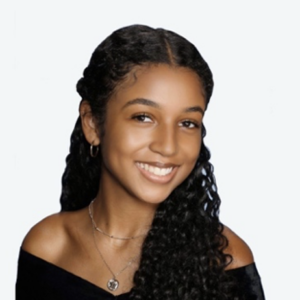
Ashley Alexander is a sophomore from Westchester County, New York majoring in Philosophy, Politics, and Economics. Alexander is a student worker with the Center for Africana Studies, involved in the Diversity and Inclusion Strategic Consulting Club, and a member of The OAX Society. She sees PEL as a sanctuary for deep understanding and communication in the deeply polarized landscape of our political climate today. She hopes to gain a deeper understanding of people with varying political ideologies and foster a sense of inclusivity that accepts the ideas and perspectives of people from diverse backgrounds.
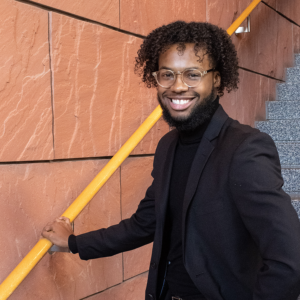
Hyniff Collins is a sophomore from Philadelphia, Pennsylvania majoring in Political Science and Religious Studies. Collins is a SNF Paideia Fellow and Ben Franklin Scholar. He hopes to go to seminary and divinity school after graduation to build a career as a professor of Christian history and Christian literature and work as a minister within the church. On campus, he writes for the Penn Epistle, the Christian journal on campus, and is a member of the Veritas Fellows and a Benjamin Franklin Scholar. As part of PEL he hopes to see what people all across the state believe and why, so that gaps can be overcome and connections made.
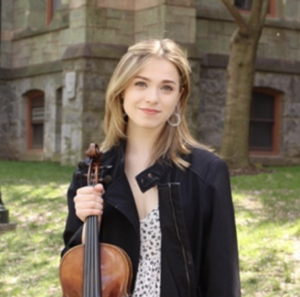
Autumn Cortright is a junior from Milwaukee, Wisconsin majoring in Philosophy, Politics, and Economics and Classical Studies. On campus, she serves as the Principal Viola of the Penn Symphony Orchestra, teaches music to Philadelphia elementary students with SPARKLES, researches the war in Ukraine with the European Studies Institute, and leads expeditions on the Appalachian Trail with PennQuest. She is looking forward to investigating the human side of politics this summer, and hopes to learn more about humanity itself while working with the PEL.
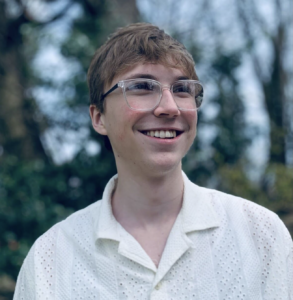
Noah Kocher is a freshman from Phoenixville, Pennsylvania majoring in English and Creative Writing. Kocher works as a content manager for The Penn Review and will be joining the class of 2027 SNF Paideia Fellows cohort. Through PEL, they hope to expand their capacity for empathetic dialogue and gain a better understanding of their home state.
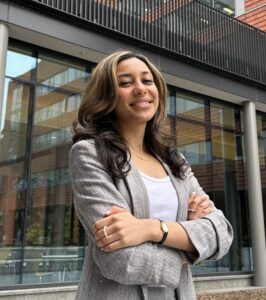 Lynn Larabi is a senior from Philadelphia, Pennsylvania majoring in Political Science. Larabi is a SNF Paideia Fellow and Thouron Scholar pursuing a Master of Science in Evidence-Based Social Intervention and Policy Evaluation at the University of Oxford this fall. During her time at Penn, she served as the president of the First Generation and Low-Income Dean’s Advisory Board, a co-curriculum chair for Ase Academy, and an inaugural fellow of the Office of Social Equity and Community. She also founded the Little Free Pantry, a community pantry developed in partnership with The Rotunda. Additionally, she sang with the Inspiration A Capella, Fuerza Latinx Band, and founded her own pop rock band called “Menagerie.” Her participation in PEL stems from a deep interest in the public reception of campaign strategies and ways to employ and encourage empathy through dialogue as a means of breaking down socio-ideological differences.
Lynn Larabi is a senior from Philadelphia, Pennsylvania majoring in Political Science. Larabi is a SNF Paideia Fellow and Thouron Scholar pursuing a Master of Science in Evidence-Based Social Intervention and Policy Evaluation at the University of Oxford this fall. During her time at Penn, she served as the president of the First Generation and Low-Income Dean’s Advisory Board, a co-curriculum chair for Ase Academy, and an inaugural fellow of the Office of Social Equity and Community. She also founded the Little Free Pantry, a community pantry developed in partnership with The Rotunda. Additionally, she sang with the Inspiration A Capella, Fuerza Latinx Band, and founded her own pop rock band called “Menagerie.” Her participation in PEL stems from a deep interest in the public reception of campaign strategies and ways to employ and encourage empathy through dialogue as a means of breaking down socio-ideological differences.

Gyuha Lee is a senior majoring in political science and economics. He joined the PEL to study how Americans practice political empathy in real life, particularly during an election cycle. On campus, Gyuha is involved with the Penn Government and Politics Association, Penn Undergraduate Law Journal, and Penn Undergraduate Economics Society.
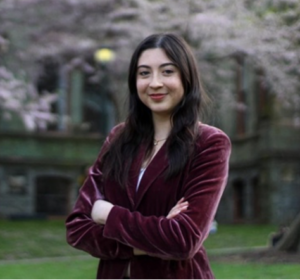
Natalie Vasquez is a sophomore from La Quinta, California double majoring in Political Science and Urban Studies. Vasquez is a SNF Paideia Fellow and Ben Franklin Scholar. She is fascinated by the notion that every individual she encounters possesses a life story that as intricate. This motivates her to listen attentively and comprehend their viewpoints, experiences, and struggles. For this reason, the mission of PEL to investigate how surroundings influence one’s beliefs and sense of belonging –and to foster meaningful discussions across socio-political disparities– aligns with her belief in the power of empathy and dialogue to bridge differences.
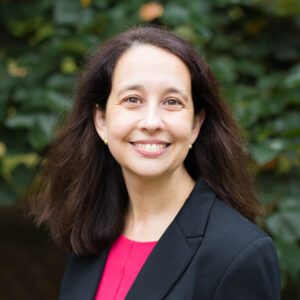
Dr. Lia Howard is a political scientist who specializes in American politics. Prior to joining the SNF Paideia Program, Lia Howard served as the executive director of the Philadelphia Commons Institute, a nonprofit organization dedicated to the practice of civic dialogue. She has taught at St. Joseph’s University, Villanova University, Eastern University, as well as at the University of Pennsylvania. She is a non-resident senior affiliate at the Program for Research on Religion and Urban Civil Society, a non-resident scholar at Baylor University’s Institute for Studies of Religion, and a senior fellow at the Robert A. Fox Leadership Program at Penn. Her research interests lie at the intersection of political culture, American political development, education policy, and citizenship. She received her Ph.D. in political science from the University of Pennsylvania where she also received her B.A. in English and French.
You’re invited to follow the project here, learn more about the related SNF Paideia spring 2024 course, Political Empathy and Deliberative Democracy, taught by Dr. Howard., and to listen to the SNF Paideia Program podcast, The Park, which lays the groundwork for PEL with three episodes dedicated to Political Empathy: “Political Empathy: American Conservatism, Its Past, Present and Future”, “Political Empathy: Perspectives from Psychology and Urban Studies”, and “Political Empathy: Space, Place and Positionality.”
Political Empathy Lab gratefully acknowledges funding from the Office of the Provost, and the Trustees’ Council of Penn Women, and administrative, networking and logistical assistance from the Office of Government and Community Affairs, and Penn’s Office of Transportation.

